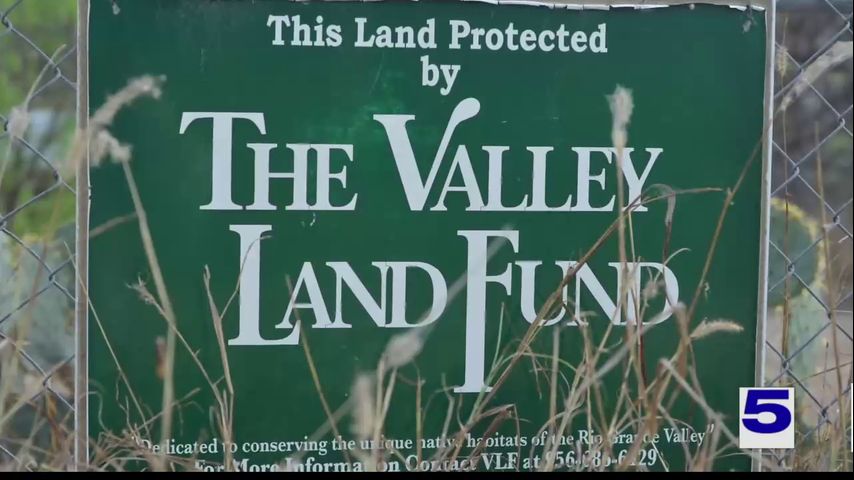Federal government moves to seize part of Salineño wildlife preserve for border wall
The federal government filed a land condemnation lawsuit Tuesday against part of a wildlife preserve in Salineño owned by the Valley Land Fund.
The U.S. Attorney's Office for the Southern District of Texas filed the lawsuit after the Valley Land Fund backed out of a deal to sell the property.
After taking the property, the federal government plans to build a wall through the area.
"The public purpose for which said property is taken is to construct, install, operate, and maintain roads, fencing, vehicle barriers, security lighting, cameras, sensors, and related structures designed to help secure the United States/Mexico border within the State of Texas," according to the lawsuit.
An attorney offered to represent the Valley Land Fund without charge.
If the lawsuit drags on, though, the nonprofit organization may struggle to pay for expert witnesses and other legal expenses.
"As of right now I can tell you that my budget did not include a legal defense fund," said Debralee Garcia-Rodriguez, the executive director of the Valley Land Fund.
The land condemnation lawsuit is part of a last-minute push by the federal government to build President Donald J. Trump's border wall.
In 2020, the federal government filed more than 100 land condemnation cases, said David Donatti, an attorney with the American Civil Liberties Union.
Few landowners have the resources to fight the federal government.
"Many people are going through these hearings without lawyers. Many people are not being able to show up to court," said Ricky Garza, an attorney with the Texas Civil Rights Project who closely tracks land condemnation cases in the Rio Grande Valley. "And a lot of these cases end in default."
Surrendering the wildlife preserve in Salineño without a fight isn't an option for the Valley Land Fund.
"The amount of land that we have left here in South Texas, it's not much," Garcia-Rodriguez said. "Especially native habitat. I think (the) record now shows that we have anywhere from 3% to 5% of native habitat."
An initial hearing in the case is scheduled for March 3.
Watch the video for the full story.




